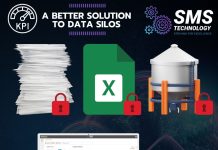Andy Lethbridge, at BAE Systems Digital Intelligence, takes a look at how data can and should be used to transform government performance
Data’s sheer ubiquity means that policymakers have the opportunity to use it to redesign public services for the better – but are they doing so?
To work in government requires many traits. A commitment to public service, for one. An ability to see the big picture is another. Then there’s the ability to stay focused amidst a fierce media and regulatory spotlight, a treacherous geopolitical backdrop and a daily blizzard of often conflicting challenges, demands and questions.
The latter, after all, are a recurring feature of life in the corridors of power. Decisions taken there impact the lives of millions of people; where to spend limited funds? Which reforms to prioritise? What technology will lead to the strongest improve performance? The list goes on.
But that’s where data can come in.
When used well, data can provide policymakers with all the information and analytics they require to steer their strategic and frontline decision-making, prioritise scarce resources and accurately track the impact of policies and programmes. After all, data is one thing government is not short of. Its services and programmes both need and generate huge amounts of data. The priority is how to capture and use it to best effect.
Embedding data in their digital transformation work
Throughout our work across government, we have no doubt that policymakers are keen to tap into this richly transformative digital seam. But at the same time, we are also seeing a number of consistent themes emerge.
A good example is that data itself is now seen as an asset and generator of value. Organisations are embedding data related activities in their digital transformation work, using such programmes as the catalyst for putting data at the heart of the organisation, as opposed to being a transactional by-product of operation.
Perhaps unsurprisingly, as data has increasingly taken root in government, so too have corresponding challenges around governance, management and ethics. Ensuring data is fit for purpose is one of the key themes of the UK’s National Data Strategy and it’s one that will help generate greater citizen trust in how government handles our data. But as our colleague Nicola Eschenburg has pointed out, there are also plenty of other ways to improve matters, such as more investment in learning and development.
Then there are seemingly perennial priorities of machine learning, artificial intelligence and automation – advances which have increasingly morphed from the stuff of Hollywood blockbuster to day-to-day reality. These technologies remain things that our clients think they ought to be doing but actually, we sense that this is largely rooted in effective marketing and ‘peer pressure’ – that nagging perception that others are doing it.
Don’t get us wrong, they all have their place. But key challenges arise where data management and governance isn’t in place and because organisations haven’t worked out what such capability is or isn’t good for, or the good practice and ethics for using it.
Searching for insights through Federated Search
Another theme is Federated Search, which occurs when it is not practical or necessary to bring all the data together. If only a subset is required, Federated Search enables linking and joined up analysis, without moving the data itself. In many ways this eases the governance burden; data owners retain control of their data at the most granular level and so there no need for huge pipelines to be built in the way they do to feed data lakes and reservoirs.
A final consistent theme is the drive to realise new data insights. This is about the ability to unlock the value of multiple datasets when analysed as a whole. Using machine learning and automation where appropriate allows much more significant volumes of data to be parsed as part of the search and analytical effort. As a result, more insights are generated more quickly – though this does hinge on the quality of the data being analysed.
Platforms and data repositories as an obstacle course
Just as we’ve seen and experienced some common themes emerging across government, we have also witnessed common challenges repeatedly crop up. Take the technology itself, for example.
When it comes to things like platforms and data repositories, making the right choice and then extracting the most value from it remains a challenge. Heritage work, that which predates “cloud” and that which has subsequently been undertaken, has often created a spaghetti of linked data sets in spreadsheets, access databases, Jupiter or github repositories, as well as in document archives where data products have also been linked.
As organisations increasingly try to further exploit cloud and digital transformation, this data and information spaghetti are having a spotlight shone on them, and significant investment is required to understand and then unpick them.
As mentioned earlier, governance, ethics and transparency are also looming large. As organisations seek to exploit the latent value in their data, the question arises as to whether or not it is the right thing to do and, if so, be done in a way that protects people rights and doesn’t destroy confidence. It is also worth noting that in our experience whilst the will to share may be there, establishing the correct governance is a slow process.
And finally, technical skills and tradecraft are key and in short supply. Many of our clients have a desire to be more self-sufficient; but recognising where there are capability gaps is crucial and making the best use of the capability available is key. These skills are in ever greater demand and it is a shared challenge across the public and private sectors to have the right data skills in the right place at the right time.
An ongoing journey for government organisations
The rapid pace of the digital revolution shows no signs of abating. With new technologies continuing to ricochet in every direction, data has become intrinsic to the art and science of public service delivery.
And while no journey ever runs smooth, and there are bound to be some bumps along the way, increasing the ability of government organisations to fully harness the power and potential of data holds the key to creating public services fit for the challenges of tomorrow, and not just today. With the populace rocked by geopolitical tumult, the aftermath of the pandemic and spiralling cost of living increases, it’s never been more important for this vision to become reality – and the sooner the better.











